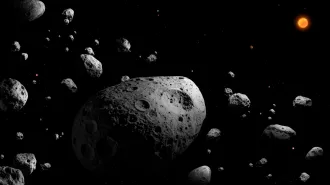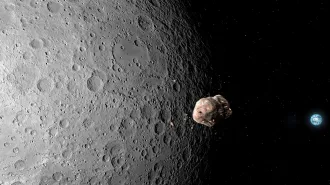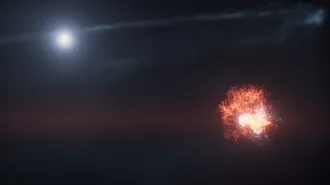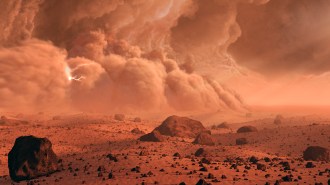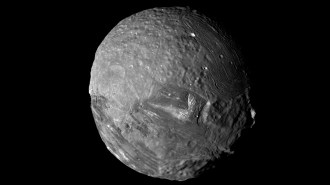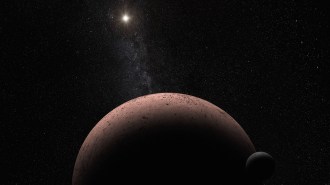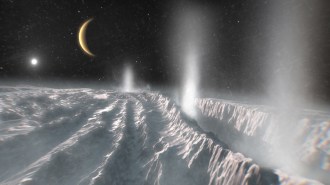Enceladus’ ocean goes global
Liquid water hidden under ice of entire Saturnian moon, study suggests

WATER, WATER EVERYWHERE Saturn’s moon Enceladus (illustrated, not to scale) harbors a global ocean of water beneath its icy surface, a new study suggests.
JPL-Caltech/NASA
